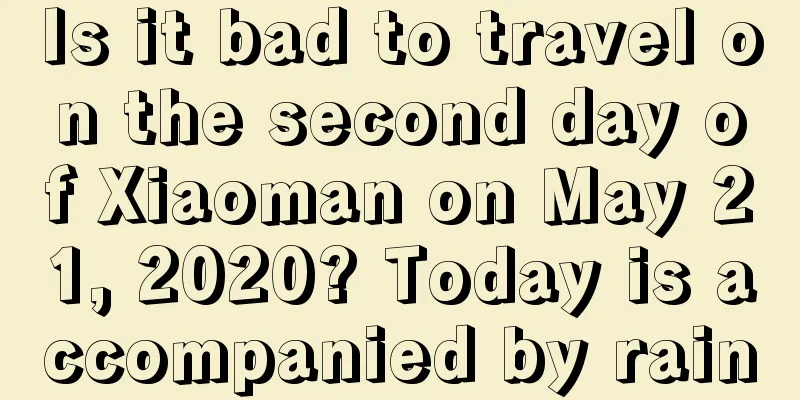Enjoy the Lantern Festival and take a look at the interesting Foshan Lantern Festival customs

Introduction: Have you heard of Xing Tongji? This is a folk activity for celebrating the Lantern Festival in Foshan. Walking on Tongji Bridge is an ancient folk cultural activity of the Han nationality. Walking on Tongji Bridge, praying for blessings and avoiding disasters is very lively. Let’s take a look at the specific content below! During the first month of the lunar calendar, you will have a good year. The first month is the most important month of spring. Mr. Shui Mo will share with you some knowledge about January.Foshan Lantern Festival: Lion Dance ContestQiandeng Lake in Nanhai even holds a "Hundred Lions Competition" on the 15th day of the first lunar month (March 5), inviting lions from the Pearl River Delta region to participate. In the 10 towns and streets of Shunde, many traditional customs are still preserved. Among the program lists launched by the 10 towns and streets, many contain a strong sense of tradition and the flavor of the New Year. Looking at the towns and streets, the themes are diverse, and schools, parks, squares and other places have become gathering places for activities. Daliang's New Year series of activities will usher in a wonderful and colorful singing and dancing, Lunjiao's Lantern Festival riddles event is waiting for the meeting of talented men and beautiful women, and Ronggui's Spring Festival basketball invitational tournament will also be staged in full swing.Foshan Lantern Festival: Travel to TongjiXingtongji is a folk custom and folk religious activity of the Han nationality in Foshan City, Guangdong Province. As a recreational and blessing activity held during the Lantern Festival. On this day, every household would bring their old and children, and from early morning till nightfall, they would hold up windmills, shake wind chimes, and carry lettuce, and march across the Tongji Bridge from north to south, praying for peace and prosperity in the coming year. The actual date for Tongji Festival is the 16th day of the first lunar month, but later the government changed it to the 15th day of the first lunar month. Xingtongji is a folk cultural activity that reflects the traditional beliefs, customs and blessing rituals of the Han nationality. On the night of the Lantern Festival, hundreds of thousands of people gathered in front of the Tongji Bridge in Foshan, calling their friends or their families, each holding a small windmill, joining the crowded crowd, walking slowly across the Tongji Bridge archway, silently chanting "walking Tongji, no closure", praying for good luck. This custom originated in the Ming Dynasty and has a history of several hundred years. Now the influence of the Lantern Festival customs has spread to the entire Pearl River Delta and Hong Kong and Macao, and the customs have become an annual event for the entire Pearl River Delta. It is said that there used to be a river called Tongji River near the present Nanpu Park in the south of Foshan City, and there was a bridge called "Tongji Bridge" on the river. The river is gone now, but the bridge is still there. On this day every year, people come here to walk across the bridge, burn incense, throw lettuce and turn windmills. There is a constant stream of people and it is very lively. History of Tongji Bridge Since the late Ming Dynasty and early Qing Dynasty, on the 16th day of the first lunar month every household in Foshan would bring their elderly and children, and from early morning to nightfall, they would walk across the Tongji Bridge from north to south, holding windmills, shaking wind chimes, and carrying lettuce, praying for peace and prosperity in the coming year. For more than 200 years, Foshan people have continued the custom of practicing Tongji from generation to generation. There is also a proverb that goes "If you are prosperous, you will have no worries." (“Biyi” is a Cantonese dialect, meaning sadness and bad luck.) Xing Tongji On the 16th day of the first lunar month every year, people in Foshan have a custom of “Xing Tongji”. Tongji Bridge was first built in the Ming Dynasty and was named in the sixth year of Tianqi in the Ming Dynasty (1626), more than 300 years ago. It is known as the "Rainbow at the End of the Village" among the Eight Old Scenic Spots of Foshan. After the Republic of China, Tongji Bridge was demolished, but the custom of walking on Tongji remained unchanged, and people still walk across the bridge every year without any prior arrangement. It was not until 2001 that the Foshan Municipal Government rebuilt the Tongji Bridge in response to public opinion to continue the custom of Tongji Bridge. According to records, Tongji Bridge was first built in the Ming Dynasty and was named in the sixth year of the Tianqi reign of the Ming Dynasty (1626). It was originally a wooden and stone arch bridge, and when it was completed, it was named "Tongji Bridge". Because the bridge was built upstream of Foshan Creek, right at the exit of the creek, when the then Minister of Revenue Li Shiwen returned to Foshan, he initiated a fundraising campaign to build the bridge. When building the bridge, he sought the opinions of the elders in his village and the elders of other villages downstream of the river, and used a mixture of wood and stone. This would make the bridge structure majestic and sturdy, while not blocking the flow of water downstream, thus benefiting everyone.Summary: After reading the introduction in the above article, we know that there is a very distinctive custom in Foshan during the Lantern Festival called "Xing Tongji". You can learn about it. I wish you all good luck and happiness in the new year! After reading this article, there are more exciting contents in the special topic of the first month of the lunar calendar. Let’s take a look! |
Recommend
Will the return of the south wind occur during the Spring Equinox in 2019? What should we pay attention to in health preservation during the Spring Equinox?
Introduction: The Spring Equinox is an important s...
What are the do's and don'ts on the 27th day of the second lunar month in 2022? Can I worship my ancestors and visit their graves?
The second month of the lunar calendar is called t...
What are the do's and don'ts on February 11, 2022 in the lunar calendar? Is it suitable for installing a door?
The second month of the lunar calendar was called ...
What are the taboos and precautions for the Winter Solstice? When is the Winter Solstice in 2018?
The winter solstice is coming, so what are the tab...
Analysis of customs on the fifth day of the first lunar month: What are the customs and habits on the fifth day of the first lunar month?
Introduction: China has been a typical traditional...
What is the fate of a tiger boy born in the Great Heat period, and what is his lucky number?
The Great Heat breeds maturity, and all things fee...
What is the fate of people born on March 3, 2021? What’s the personality of a baby born on Shangsi Festival?
The fate and personality of children born at diffe...
What is the direction of the God of Wealth on the seventh day of the eleventh lunar month in 2021, and what is the God of Wealth?
The cold wind blows, welcoming the winter month. W...
When is the Cold Clothes Festival in 2019 in the Gregorian calendar? What will your fortune be like on that day?
The Cold Clothes Festival is on the first day of t...
Can I take up the post on the tenth day of the twelfth lunar month in 2018? How is the day?
The day will affect your fortune, which means the ...
Is the fourth day of the first lunar month in 2019 suitable for signing and opening a business?
With the continuous development of society, there ...
What is Cold Food Festival? Is the 2019 Cold Food Festival the day before Qingming Festival?
Introduction: Cold Food Festival is also an import...
Is it suitable for people born in the Year of the Rat to get married during the Qingming Festival in 2020? Is it an auspicious month for people born in the Year of the Rat?
The choice of wedding date should be based on the ...
Query of the position of the God of Happiness at each hour on the seventh day of the tenth lunar month in 2021
Although it is the beginning of winter in the tent...
Where is the auspicious position of the God of Happiness on the Lantern Festival in 2018? How to welcome the God of Happiness?
Introduction: The God of Joy is the god in charge ...









